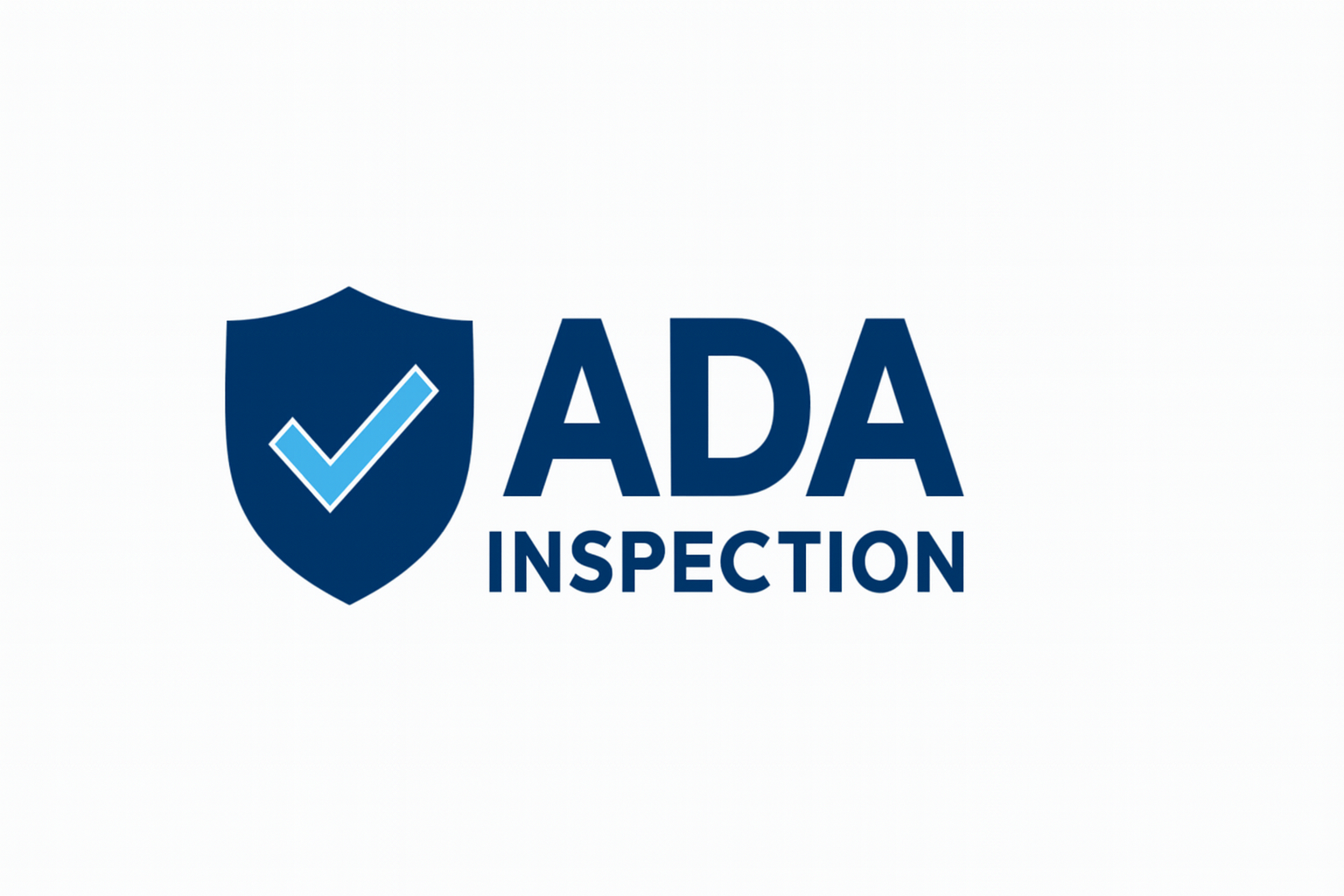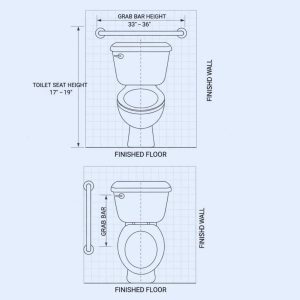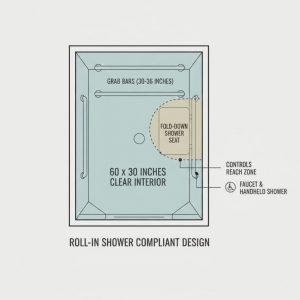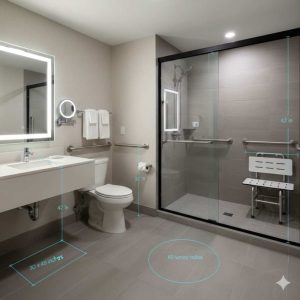ADA handicap parking rules aren’t just for government buildings—they apply to many private businesses too. Under the Americans with Disabilities Act (ADA), property owners and tenants are legally required to ensure their parking lots include accessible spaces that meet specific standards. But who actually enforces those rules? And what happens if you don’t comply? This guide breaks it down clearly so you can protect your business and your customers.
ADA Parking Requirements for Private Business Owners
How many accessible spaces are required?
The number of accessible spaces depends on your total parking capacity. According to the ADA Standards for Accessible Design:
-
1 to 25 total spaces: 1 accessible space
-
26 to 50 spaces: 2 accessible spaces
-
51 to 75 spaces: 3 accessible spaces
-
At least 1 of every 6 accessible spaces must be van-accessible
What design features must each space have?
Every accessible parking spot must follow specific design criteria:
-
At least 8 feet wide (11 feet for vans) with a 5-foot access aisle
-
Signage with the International Symbol of Accessibility
-
Level ground with less than 2% slope
-
Vertical clearance of 98 inches for van spaces
Do these rules apply to older lots too?
Yes. ADA Title III requires that all public facilities—regardless of age—remove accessibility barriers if it’s “readily achievable.”
If you’re unsure whether your parking lot is compliant, consider booking an ADA compliance inspection for professional guidance.
ADA Parking Enforcement: Who’s Responsible?

Federal enforcement under ADA Title III
The Department of Justice (DOJ) handles complaints related to ADA violations. Anyone can file a complaint, and the DOJ can investigate and pursue enforcement.
California-specific enforcement laws
In California, Title 24 and the California Building Code (CBC) add additional layers. The Division of the State Architect (DSA) ensures compliance in state-funded construction, and the Unruh Civil Rights Act allows private citizens to sue for access violations.
Can individuals sue a business directly?
Yes. In fact, California sees thousands of lawsuits annually for inaccessible parking lots, often with no prior warning. Businesses in hospitality, retail, and healthcare are frequent targets. Protect yourself early with a CASp inspection for businesses.
What Are the Penalties for ADA Parking Violations at Private Businesses?
Common penalties and legal exposure
-
Federal fines: $75,000 or more for first offenses, $150,000 for subsequent ones
-
Settlements for civil suits: often $10,000 to $30,000
-
Cost of retrofits and litigation can skyrocket without documentation
Can insurance cover ADA violations?
Generally, no. Most commercial general liability policies exclude coverage for ADA claims, meaning all costs fall on the property owner.
How Can Business Owners Avoid ADA Parking Fines and Lawsuits?
Schedule a Certified Access Specialist (CASp) inspection
A CASp inspection identifies non-compliant features before lawsuits happen. In California, businesses with a CASp report may qualify for reduced statutory damages.
Correct barriers using Title 24 and ADA design standards
Focus on correcting high-risk areas:
-
Signage visibility and placement
-
Striping and access aisles
-
Slope and surface conditions
Keep ADA documentation updated
Always retain records of ADA inspections, upgrades, and any architectural barrier removal.
Explore our statewide ADA compliance services to stay audit-ready.
Quick ADA Parking Lot Self-Check for Business Owners
Use this checklist to assess your lot:
-
Do you have the correct number of accessible spaces?
-
Are van-accessible spaces marked and dimensioned properly?
-
Is there adequate slope and clear ground space?
-
Are all signs present and readable?
-
Are access aisles correctly positioned and unobstructed?
ADA Compliance Covers Physical and Digital Access
Did you know ADA compliance extends to digital platforms too? Once your physical space is accessible, check out our ADA website design checklist to cover your digital front door as well.
ADA Parking Enforcement: What Businesses Need to Know
Can I be fined without a warning?
Yes. Neither the DOJ nor private plaintiffs are required to give notice before filing a claim.
Who’s liable—property owner or tenant?
Both can be held responsible. Shared parking lots and commercial leases often complicate liability.
What if I lease my property?
You may still be responsible for ADA compliance, depending on lease terms and control of the premises.
How often are accessibility rules updated?
Codes are updated regularly. For example, California Title 24 was revised as recently as 2022.
ADA Compliance for Businesses: Final Takeaways
ADA parking rules are enforced at both federal and state levels, and your business is not exempt just because it’s private. From fines to lawsuits, noncompliance is costly. Take action with a CASp inspection, fix obvious issues, and document your efforts.
If you’re not sure where to start, our ADA site audits for public access compliance can help protect your business from legal risk while improving access for everyone.




